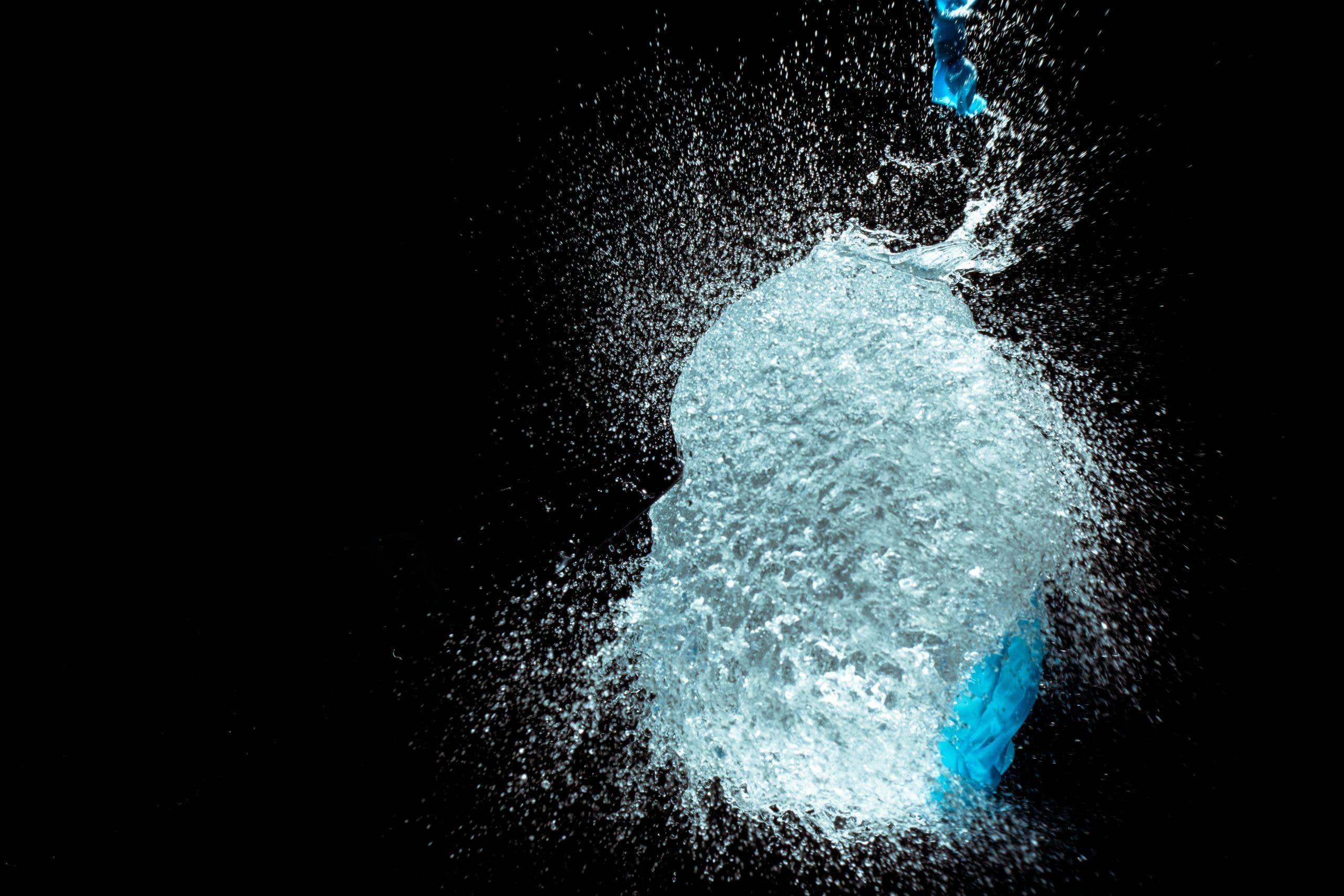You may have heard of “no-fap” or “No Nut November.” These are both nicknames for the practice of semen retention, or intentionally avoiding ejaculation. Some social media influencers and those with an interest in men’s health claim that there are health benefits to semen retention — everything from improving your fertility to maximizing sexual pleasure, conserving energy, increasing testosterone and masculinity, and bettering emotional health.
But is semen retention healthy? Science says otherwise. In fact, there are many physical and mental benefits to ejaculation, and there’s no evidence of any benefits to not ejaculating for 7 days (or longer). Let’s unpack the scientific research behind semen retention, fertility, and overall men’s health.

Key takeaways
- Semen retention is the practice of avoiding ejaculation to improve one’s physical, emotional, or spiritual health.
- Semen retention has no benefit for male fertility. As a period of abstinence increases, the quality and genetic health of sperm deteriorate significantly.
- There are benefits to regular ejaculation, including lower stress and, potentially, improved prostate health.
What is semen retention?
Essentially, semen retention is the practice of not ejaculating. This can be through complete abstinence, sexual activity without orgasm, or learning to orgasm without ejaculation. (Yes, you can have an orgasm and not ejaculate.)
Semen retention is not a new fad — it’s an old practice. The concept originates from ancient spiritual teachings, in particular a Chinese philosophy known as Taoism.1 Taoism teaches that ejaculation depletes your energy and life force, while sexual self-control is a way to maintain and increase them.
Over the years, modern myths have arisen, claiming there are health benefits to semen retention, including:
- Improved fertility
- Higher testosterone
- Better overall health
There is little evidence to back up these claims. In fact, regularly ejaculating is likely beneficial to your fertility and overall health.
What happens if you don’t ejaculate?
Sperm that’s not ejaculated sits in “storage” in the epididymis, the coiled tube attached to each testicle, or in the ejaculatory duct. Eventually, it dies and is reabsorbed by the body. This doesn’t affect your overall health positively or negatively.
What about “blue balls”? This is a colloquial term for increased blood pressure in the testicles as a result of sexual arousal. When you’re turned on, blood flow to your genitals increases, while blood flow away from the genitals slows. This “trapped blood” is what causes an erection.
A prolonged period of increased blood pressure without ejaculation might cause discomfort in the testes. But this isn’t harmful to your health.
The science behind semen retention
Is semen retention healthy? Are there medical benefits to not ejaculating? Let’s look at the science connecting semen retention to fertility, testosterone levels, and overall health.
Is sperm retention beneficial for fertility?
Can “saving sperm” help with fertility? Semen volume and sperm count may increase, temporarily, if you don’t ejaculate. But science shows that semen retention is detrimental to sperm quality.
Studies have found that, after an abstinence period of 1–2 days, there’s an increase in semen volume.2 This peaks after about a week. Total sperm count also tends to be higher after longer periods of abstinence.
But as the abstinence period increases and sperm sit in “storage,” the quality and genetic health of sperm deteriorate significantly. Peak sperm motility, or how well sperm are moving, is reached just one day after the last ejaculation. Abstaining for longer than five days results in lower sperm motility.2 Sperm motility is very important for fertility, as it’s the metric that determines sperm’s ability to swim toward the egg.
Additionally, sperm’s genetic health decreases measurably after five days of semen retention. One study found the percentage of sperm containing fragmented DNA was 9–10% in the first 2 days after the last ejaculation.3 By 11 days after ejaculation, subjects had more than twice as many sperm with DNA damage. Sperm mitochondrial damage also increases with longer periods of abstinence.3
The bottom line: semen retention has no benefit for male fertility.
If you’re trying to conceive, experts recommend having sex every other day during the female partner’s fertile period to optimize chances of pregnancy. Studies show that having sex every day during the fertile window gives a couple a 25% chance of conceiving, while sex every other day gives them a 22% chance.4
Learn more about how often to have sex when you’re trying to conceive.
If you ejaculate multiple times a day, you will likely have lower sperm count per ejaculation.5 So, if you’re trying to conceive, you should temporarily avoid masturbation and focus more on having sex. But there’s no reason to avoid masturbation before the fertile period. Regular ejaculation helps “clear out” old sperm, which may be less fertile.
Learn more about masturbation and male fertility.
If you’re producing a semen sample for sperm testing, sperm freezing, or IVF, we recommend abstaining from ejaculation for 2–5 days before to get the best results.
Semen retention for low sperm count?
Even if you have a low sperm count, long-term semen retention isn’t the answer. Studies show that, for men with a low sperm count, having sex once or even more per day can be beneficial when trying to conceive.
A study of 576 men at an infertility clinic examined the semen analysis results of men ejaculating twice in a 1–4 hour period.6 Combining the two samples significantly increased the total sperm count and potentially the chance of conception. Other studies have seen similar results for men with low sperm counts, finding that ejaculating twice in one hour can produce more motile sperm in the second ejaculation.7,8
Once again, the bottom line here is that avoiding ejaculation will not benefit your fertility.
How does semen retention affect testosterone levels?
Another common question is whether ejaculation, masturbation, or sex affects testosterone levels. Research here is mixed and far from conclusive. One study found that testosterone levels were higher following a three-week period of abstinence, but levels were unchanged after the subjects masturbated to ejaculation.9
Another study compared testosterone levels between men who participated in sex and men who just observed sex.10 For both groups, testosterone levels rose during arousal, but it increased significantly more (72% vs. 11%) in those who actually engaged in sexual activity. A third small study of four heterosexual couples found testosterone levels were higher following sexual activity than on evenings when the couple didn’t have sex.
In general, masturbation, sex, or ejaculation doesn’t have a long-term impact on testosterone levels. Any correlation found between abstinence and testosterone levels is a short-term effect.
Ultimately, there’s no robust evidence to suggest that your ejaculation frequency can affect your testosterone levels, or that semen retention is an effective response to low testosterone.
Are there health benefits to semen retention?
Not really. Semen retention may be a personal or spiritual practice, but there are no real medical benefits to not ejaculating. In fact, there are many benefits to regular ejaculation that may be missed while practicing semen retention.
Benefits of regular ejaculation
Here are five benefits of ejaculation, whether through masturbation or sex:
- Benefits for prostate health. Have you heard that 21 is the magic number? The European Urology Journal published the results from an 18-year study looking at the connection between ejaculation frequency and prostate cancer.11 Men were 20% less likely to develop prostate cancer if they ejaculated more than 20 times per month — 21 times was deemed the ideal amount.
- Stress reduction. Sex, masturbation, and ejaculation gives your feel-good hormones such as oxytocin and dopamine a boost.12 This helps improve mood, reduce stress and alleviate depression.
- Improved sleep. According to the Sleep Foundation, hormonal changes after sex or masturbation cause drowsiness and make sleep easier. About 50% of people say masturbation improves their sleep quality.13
- Lowers the risk of heart disease. According to the American Journal of Cardiology, having sex infrequently — once a month or less — can increase your risk of cardiovascular disease.14
- It boosts your sexual health. Masturbation can reduce anxiety around sex and make you more body-confident. It increases the blood flow to the genitals and keeps your sexual organs functioning properly. It also helps you get to know your own body and what you like sexually.
Bottom line? You do you — it’s good for you.
References
- 1. Judy, Ron S. “The Semen in the Subject,” 2015.
- 2. Levitas et al. “Relationship between the duration of sexual abstinence and semen quality: analysis of 9,489 semen samples,” 2005.
- 3. Agarwal et al. “Abstinence Time and Its Impact on Basic and Advanced Semen Parameters,” 2016.
- 4. Comar et al. “Influence of the abstinence period on human sperm quality: analysis of 2,458 semen samples,” 2017.
- 5. Wilcox et al. “Timing of Sexual Intercourse in Relation to Ovulation — Effects on the Probability of Conception, Survival of the Pregnancy, and Sex of the Baby,” 1995.
- 6. Bahadur et al. “Can a Short Term of Repeated Ejaculations Affect Seminal Parameters?,” 2016.
- 7. Tur-Kaspa et al. “How often should infertile men have intercourse to achieve conception?,” 1994.
- 8. Bahadur et al. “Semen characteristics in consecutive ejaculates with short abstinence in subfertile males,” 2016.
- 9. Exton et al. “Endocrine response to masturbation-induced orgasm in healthy men following a 3-week sexual abstinence,” 2001.
- 10. Escasa et al. “Salivary Testosterone Levels in Men at a U.S. Sex Club,” 2010.
- 11. Rider et al. “Ejaculation Frequency and Risk of Prostate Cancer: Updated Results with an Additional Decade of Follow-up,” 2016.
- 12. Melis et al. “Dopamine and sexual behavior,” 1995.
- 13. Suni et al. “The Relationship Between Sex and Sleep,” 2024.
14. Hall et al. “Sexual Activity, Erectile Dysfunction, and Incident Cardiovascular Events, 2010.




